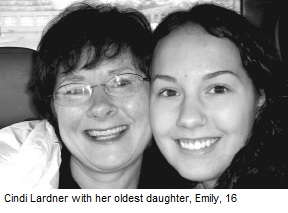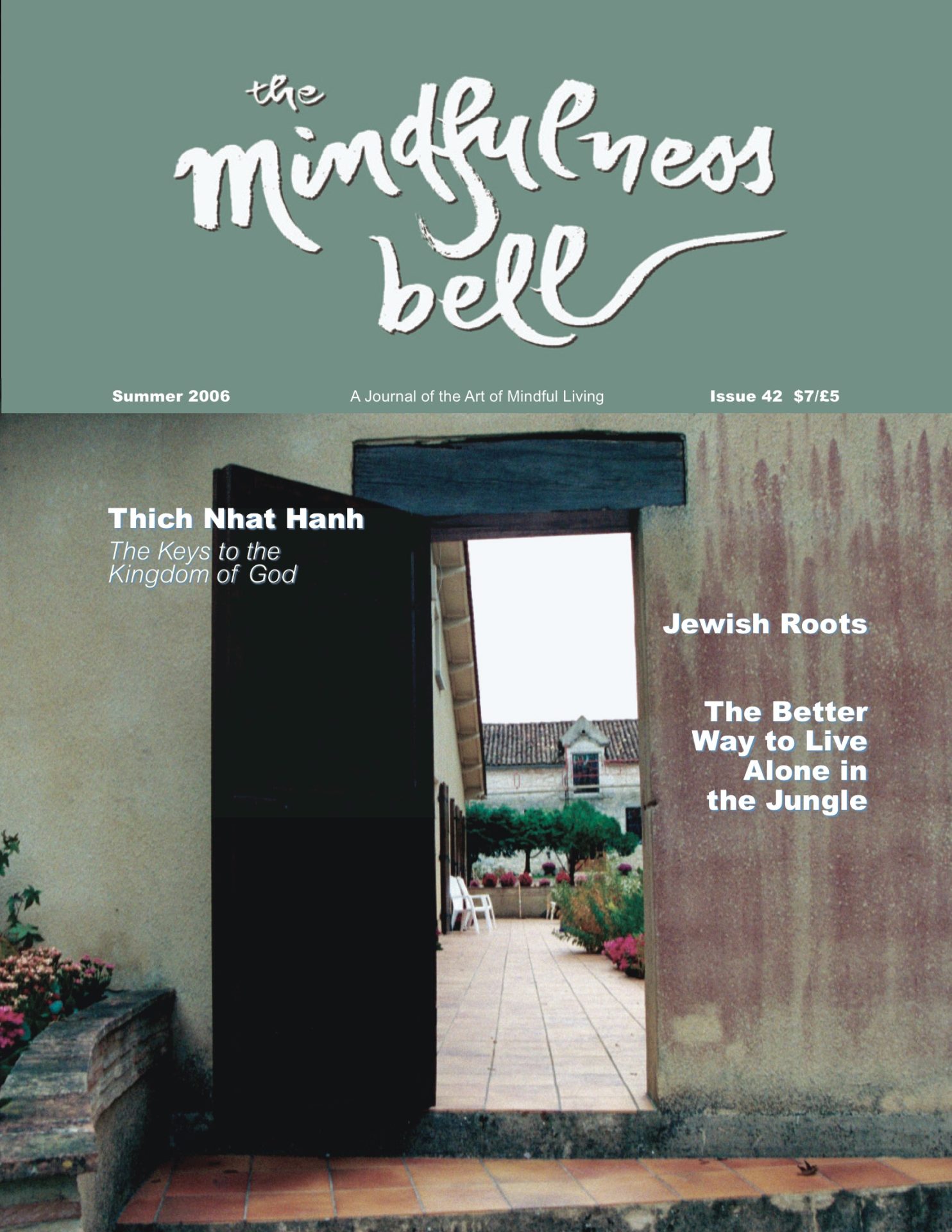
By Cynthia Marie-Martinovich Lardner
One of my core beliefs is that parenting, in and of itself, is a form of mindfulness. My experience of mindfulness in the family, however, recently underwent a metamorphosis. This happened after good seeds were watered at the 2005 Summer Family Retreat at Maple Forest Monastery. The catalyst for this change was a bacterial infection that dragged on for over three months.
Before taking ill,

By Cynthia Marie-Martinovich Lardner
One of my core beliefs is that parenting, in and of itself, is a form of mindfulness. My experience of mindfulness in the family, however, recently underwent a metamorphosis. This happened after good seeds were watered at the 2005 Summer Family Retreat at Maple Forest Monastery. The catalyst for this change was a bacterial infection that dragged on for over three months.
Before taking ill, I felt I was mindfully parenting my four children: Maddie, 6, Patrick, 7, Nicole, 9, and Emily, 16. This included planning vacations, making plans with friends, keeping the children involved in activities, and driving children to play dates. I was busy keeping us busy. This busy-ness disappeared, not by choice but because of the infection. For three months, I was fatigued, sore, and unable to engage in our usual whirlwind of activities. Inertia ruled many of my days. Helplessness, frustration, and guilt became emotional themes. Being a single mother exacerbated the situation.
But I discovered, while often stuck in bed, a new repertoire of parenting skills: listening deeply, looking with compassion, and cuddling. Soon each child’s unique set of needs and strengths emerged, traits I had not noticed while I was busy parenting.
Children as Teachers
Now I was not busy making plans, running errands, scheduling events, talking to friends, logging on to the Internet, or tending to thousands of other things. I only had time to be with my children, who were quite happy having my undivided attention.
A deeper aspect of mindfulness had crystallized. I had learned to be present with my children without other people, events, or props. Sometimes my children were bored, but they were calmer, happier, and easier to be with.
I began to take to heart Thay’s teachings on watering good seeds so they can grow stronger and more available for use in our daily lives. I recalled how genuinely my children had enjoyed being with the monastics at the retreat. I realized it was because the monastics give their undivided attention to children: they are truly present whether baking chocolate bread, collecting flowers, picking tomatoes, playing a game, or singing a song.
I also learned from my children. Perhaps they were my best teachers. My six-year-old daughter, Maddie, found a dragonfly with an injured wing. I watched as she gently picked it up on a stick and tried to feed it grass. Many adults walked by; a few children also passed. They were too busy to stop. Then after a while a small group gathered around Maddie. The dragonfly had long lacy wings and big blue-green eyes. Its legs were long and graceful; they tickled Maddie’s little hand as it unsuccessfully struggled to take flight. Maddie carefully placed the dragonfly in a flower garden. What a gift to be truly present with my daughter and to see her joy and laughter in such a simple thing!
I played Lego with my son Patrick, which required me to pay close attention. I took time to understand my sixteen-year-old Emily’s push for autonomy, and her need to struggle against me, something that required patience and energy.
Breaking the High-Tech Habit
As a parent, it is hard to slow down and just be with my children in their world—not the world I created for them, which is all too often defined by schools, activities and events—but to be with them in their world. In this high-tech era it is hard to disconnect: to turn the cell phone off, to leave the Palm Pilot home, to not check my e-mail or voice mail several times a day, to even let the mail sit for a day. Research indicates many teenagers and adults experience distress even while on vacation if they do not have access to the technological world left at home.
Now, as I regain my health, I try to avoid a symbiotic relationship with these high-tech trappings. I have learned to say no to many opportunities that I would enjoy, even greatly benefit from professionally. I just want to focus on being a parent: being a parent in a simpler way.
Ajahn Chah said, “Everything is a hassle, everything is presenting obstacles—and everything is teaching you.” My intention is to be fully present, with undivided attention, to these moments in my daily life—and with my children.
Cynthia Marie-Martinovich Lardner, Radiant Nourishment of the Source, lives in Troy, Michigan. In addition to being a mom, Cindi studies Tae Kwan Do, is learning to speak Thai, and is looking forward to finishing her Master’s Degree in Counseling later this year.

